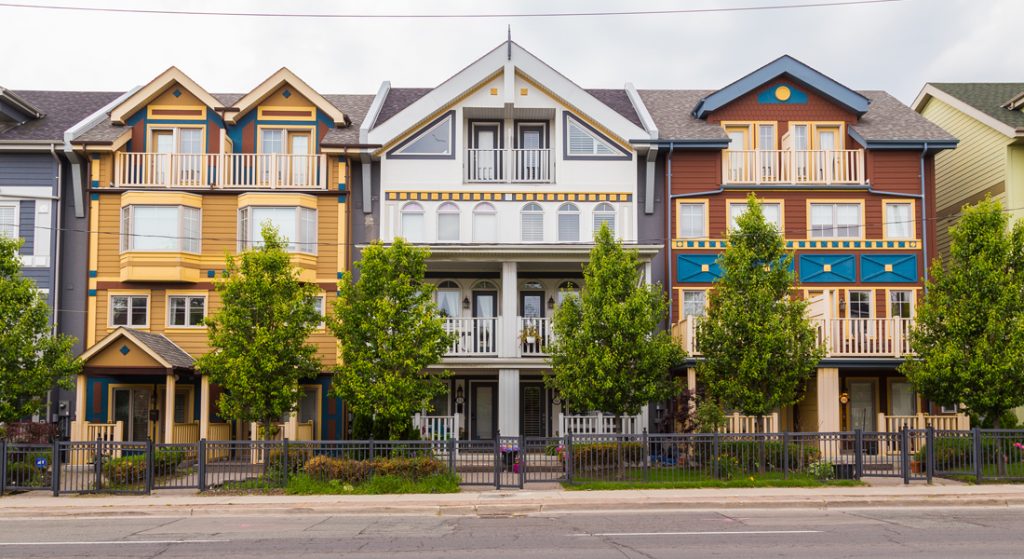There’s a big difference from a finance perspective between buying a home and buying a rental property…
By Al Ramsay
This year the news has been filled with differing headlines on Canada’s red-hot housing market. Some experts predict a crash, insisting that the bubble has to burst, while others argue that there are no signs that things will come crashing down any time soon. Still, continued development in Toronto and Vancouver, Canada’s two hottest housing markets, have created a frenzy of discussions among people who want to add real estate to their portfolio for the first time, or want to acquire additional properties.
There are big differences between what makes a property a home versus an investment property. It’s important to know the search criteria for an investment property, strategies to finance the purchase, and how to work around some constraints such as having a single income in an expensive market.
Diversification of asset class
Despite the blanket statements that are being made about real estate, there’s not one Canadian market, but a combination of small markets that are not created equal. For example, not all properties have appreciated in the past year. The Canadian Real Estate Association report in February 2016 stated that although the national average sale price rose 16.4% on a year-over-year basis, it actually declined 1.4% when British Columbia and Ontario were excluded. I highlight
this to remind residents in Ontario and British Columbia that real estate does not always go up in value. However, from a risk management point of view, adding real estate to your existing portfolio of stocks and bonds as a third asset class does achieve the benefits of diversification, which could reduce your risk.
Diversification of location
When choosing a property in a hot market, a compromise on your wish list may have to be made on important characteristics such as location. Ensure you stay within your affordability range, and don’t over-extend yourself because you are afraid of missing out. If the compromise is a challenge, then consider an investment property you can afford, and renting where you want to live. The purchase of a home will involve emotions that influence the decisions on whether you fall in love with the house or not. On the other hand, an investment property should be assessed based on the raw numbers of the income it generates on an annual basis in relation to the price. It doesn’t really matter too much whether the colours of the drapes clash with the carpet, or that the bathroom tiles are a little too loud. Also, the capital gain or appreciation is also part of the return, but you have no control over this—consider it the icing on the cake.
Diversification of property type
Here’s another option to consider: instead of trying to buy a detached home in the expensive city, you can buy a semi-detached with second suite basement; or you could buy two affordable condominiums, using one as your principal residence and the other as an investment property.
Financing options
After you have found a property that meets your criteria, the next important step is how to finance the purchase. The preferred option is a 20% down payment, in order to avoid CMHC (Canadian Mortgage and Housing Corporation) insurance premiums; or pay the premiums if your down payment is between five and 20%. If you live in a market where real estate prices are not rapidly rising with double-digit increases in some years, then you can rationalize the decision to keep saving towards the 20%. However, if you live in a hot market and are not seeing any double-digit salary increases, you may find yourself chasing a moving target. The Toronto Real Estate Board (TREB) reported that the average home price in Toronto was $685,278 in February 2016, which means a 20% down payment was $137,055.60. If the next year is a repeat of the recent 14.9% price increase, the average price becomes $787,384.42, and now you need $157,476.88 in savings. So if you don’t expect to see that type of salary increase or annual bonus, you may feel like a dog chasing its tail, in trying to set aside a 20% down payment in a rapidly rising market.
Those of you who are not first-time buyers, and are hoping to buy an investment property, can take advantage of the fact that your down payment can be borrowed from the equity of your principal residence. This allows you to achieve the objective much more quickly than if you were saving for a down payment while maintaining your mortgage payments on the principal residence, or if you were planning to pay off your existing mortgage before buying the investment property. If that takes 20 years, you can imagine how much the prices would have changed.
As you accumulate assets to grow your wealth, diversification to add real estate along with your existing stocks, bonds and mutual funds is a good strategy. Explore various options beyond where you reside, and distinguish whether you are buying a home or an investment. Finally, speak to a Financial Advisor to explore what options are appropriate for your specific circumstance in terms of financing the investment, and other considerations such as tax planning and estate planning.
For more information on buying a home or property, please visit https://www.tdcanadatrust.com/products-services/banking/mortgages/td-mortgages-resl.jsp.
–
AL RAMSAY is TD Bank Group’s regional manager, LGBTA Business Development, and leads a team of expert advisors dedicated to serving the LGBTA community. For more information or to book a meeting, he can be reached at al.ramsay@td.com or follow him on Twitter at @ALRamsay_TD. Orlando Lopez, TD Wealth Financial Planner, also contributed to this article.

MONEY$TYLE: BUYING A HOME VS. BUYING AN INVESTMENT PROPERTY
Related Articles
Construction Has Started On Canada’s 2SLGBTQI+ National Monument In Ottawa
The national 2SLGBTQI+ monument in Ottawa — inspired by a dramatic thundercloud — has broken ground and is set to open in 2025
Ontario’s LGBT YouthLine Marks Historic 30th Anniversary
Forever young: YouthLine celebrates 30 years of confidential, non-judgemental peer support on May 2, 2024. Here’s more on the vital Ontario-based organization and their work within the community
A.D. Sui Reflects On The Dragonfly Gambit, And Navigating The World With A Disability
The author sits down with IN to talk about her just released queer novella, a brilliant page-turner





POST A COMMENT